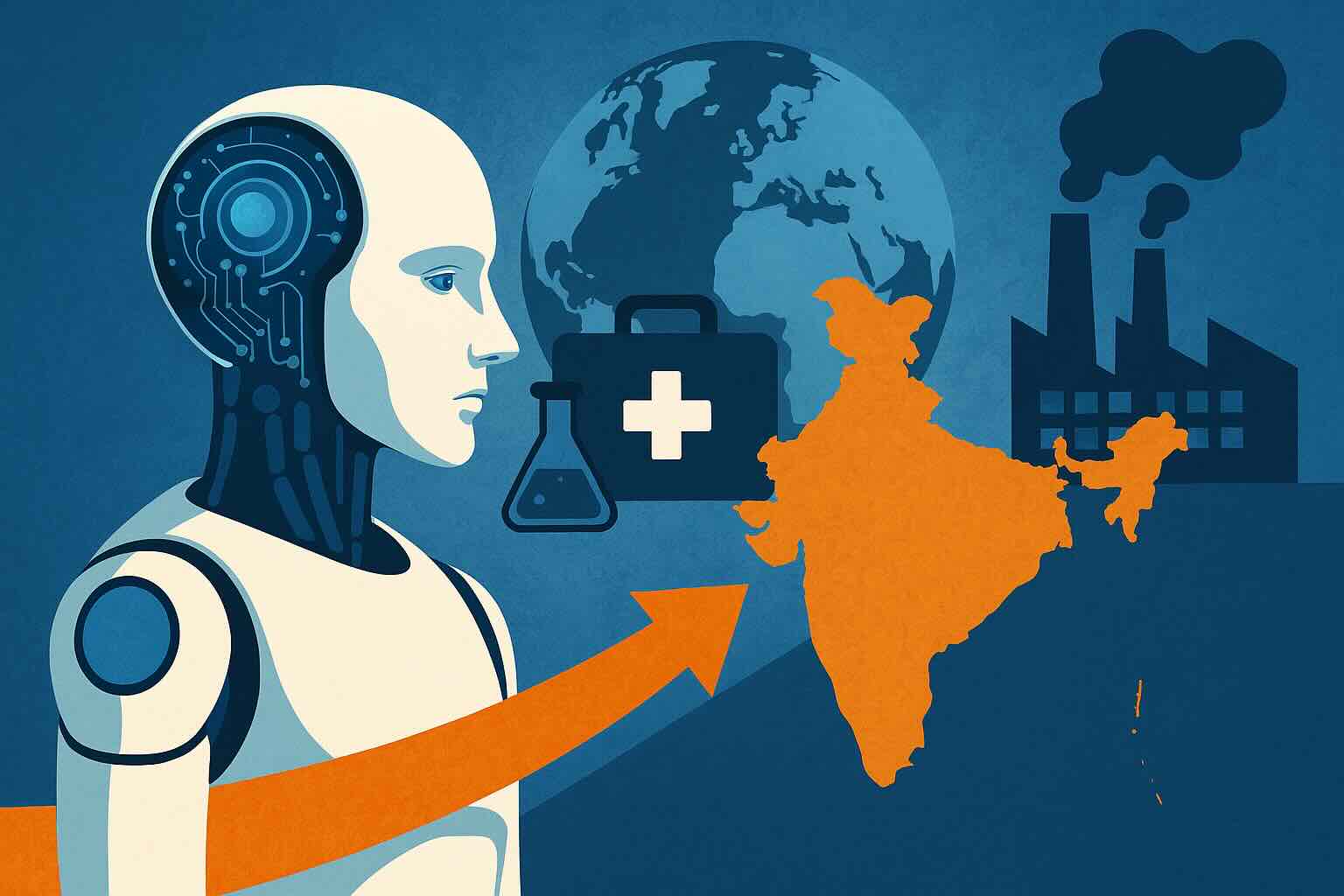India has become the ultimate experimentation lab for global companies, spanning industries like artificial intelligence (AI), pharmaceuticals, and digital technology. Foreign firms find it easier to test their cutting-edge innovations in India before rolling them out globally. But why does this happen? The reasons lie in India’s vast population, relaxed data privacy norms, and cost-effective market.
1. A Massive & Diverse Population – A Goldmine for Data
India’s 1.4+ billion people offer a huge and varied sample size, making it an ideal testing ground for AI models, medical trials, and new consumer products. The country’s diversity—in genetics, languages, and lifestyles—allows companies to gather comprehensive data without needing multiple test markets.
- AI & Tech: Tech giants like Google, Meta, and OpenAI test experimental AI models in India before their global launch.
- Healthcare & Pharma: Global pharmaceutical companies leverage India’s genetic diversity to conduct large-scale clinical trials.
📌 Example: Many AI-powered virtual assistants were trained on Indian users to improve language models for diverse English accents.
2. Weak Data Protection & Privacy Awareness
India’s lack of strict data privacy laws makes it easy for companies to collect and experiment with massive amounts of user data.
- Unlike GDPR in Europe or California’s data protection laws, India’s data policies are still evolving.
- Many Indian consumers do not prioritize digital privacy, allowing companies to extract and analyze data with minimal pushback.
📌 Example: AI models for face recognition, biometric verification, and digital identity mapping were extensively tested in India.
🚨 Reality Check: Indians raised concerns about government surveillance but freely shared their biometric data with foreign apps and platforms.
3. Cost-Effective & Minimal Legal Hurdles
Companies can conduct clinical trials, AI model testing, and consumer behavior studies in India at a fraction of the cost of Western countries.
- Legal Loopholes: Fewer consumer rights enforcement means companies can experiment without fear of lawsuits.
- Cheap R&D: India’s low-cost workforce enables large-scale testing at reduced costs.
📌 Example: Many food, healthcare, and fintech apps first introduce experimental features in India before expanding globally.
🚨 Case Study: Facebook’s controversial Free Basics initiative was first launched in India before being banned for violating net neutrality.
4. Indians Prefer Foreign Over Local – A Psychological Edge
A significant portion of Indian consumers place higher trust in international brands over homegrown alternatives. This allows foreign firms to roll out beta versions, untested products, and AI experiments with ease.
- Google’s AI voice models were first trained on Indian accents before worldwide release.
- McDonald’s & KFC tested their Indianized menus here before expanding their global vegetarian offerings.
🚨 Irony: Many Indians protest privacy violations by their own government but accept similar practices by foreign companies without resistance.
5. The Future – Will India Continue to Be a Testing Ground?
Unless India implements stricter data protection laws and promotes local innovation, foreign companies will continue treating it as a low-risk, high-reward experimental hub.
How Can India Change the Narrative?
✅ Stronger Data Privacy Laws – Indians must demand better regulations on data collection and usage.
✅ Encouraging Local Innovation – The rise of Indian AI and biotech firms can challenge global dominance.
✅ Consumer Awareness – Indians must understand the value of their data, identity, and market power.
Final Thoughts
India is currently the world’s favorite testing ground for AI, medicine, and digital services. Unless Indian consumers and policymakers take proactive steps, global companies will keep using India as their experimental playground before launching their products worldwide. The question is—will India take charge of its own future or continue being a testing lab?
🚀 What are your thoughts? Should India take a stand against being an experiment hub?










+ There are no comments
Add yours